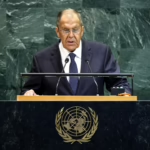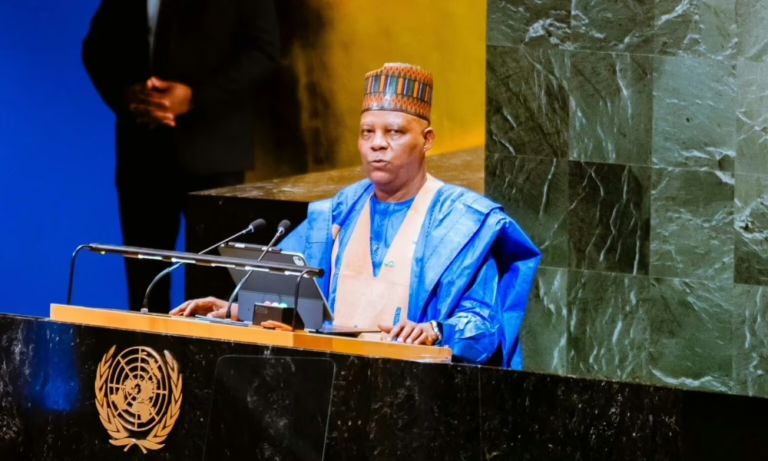During the 80th United Nations General Assembly (UNGA) session in New York, President Bola Tinubu, through Vice President Kashim Shettima, called on major financial institutions-the World Bank, International Monetary Fund (IMF), and African Development Bank (AfDB)-to significantly increase their investments in climate initiatives.
Highlighting the urgency of the climate crisis, Tinubu emphasized that addressing this challenge requires bold, consistent leadership rather than mere rhetoric.
He revealed that Nigeria is actively working to secure between $20 billion and $25 billion in climate-related funding by 2030. This ambitious target includes leveraging instruments such as green bonds, blended finance models, and public-private partnerships designed to share risks.
President Tinubu urged international collaborators to enhance concessional financing, facilitate the exchange of expertise, and promote technology transfer. These efforts are crucial not only for Nigeria’s green transition but also for advancing Africa’s role in fostering a more resilient and sustainable planet.
He stated, “Our goal is to unlock $7 to $10 billion in grants and concessional funds from global allies, while encouraging technology adoption, regional energy cooperation, and green entrepreneurship to stimulate inclusive economic growth.”
Recognizing Nigeria’s acute vulnerability to climate change, Tinubu described climate action as an existential imperative rather than a discretionary choice.
To support this, Nigeria has implemented comprehensive domestic reforms aimed at resource mobilization. These include modernizing tax legislation to simplify compliance, eliminating inefficient fossil fuel subsidies, easing financial pressures on households and businesses, and improving revenue collection efficiency.
Simultaneously, the government is enhancing the business climate through new laws and policies that facilitate investment, particularly in clean energy and sustainable infrastructure, to attract private sector capital.
In March, Nigeria introduced the Nigeria Carbon Market Activation Policy, establishing a strong framework for credible emissions reductions. This initiative positions the country as a trustworthy center for Article 6 carbon markets, both voluntary and compliance-based.
Through this policy, Nigeria aims to generate up to $2.5 billion by 2030 from high-quality carbon credits and related investments.
President Tinubu acknowledged the global nature of the climate challenge, stressing that no nation can confront it in isolation. Like many developing countries, Nigeria depends heavily on international support to implement effective mitigation and adaptation measures.
He therefore appealed to international financial institutions, particularly the World Bank, IMF, and AfDB, to boost their climate financing efforts. Additionally, he called on developed nations to fulfill their climate finance promises, including the annual $100 billion commitment under the Paris Agreement.

















